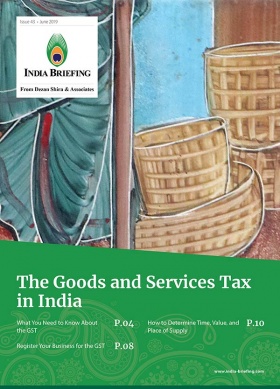Relief for Companies in India as Lockdown Period Excluded from Insolvency Process Timeline
- The Insolvency and Bankruptcy Board of India (IBBI) has amended the corporate insolvency resolution process (CIRP) due to the nationwide lockdown announced by the government to prevent the spread of COVID-19.
- Under the amendment, the lockdown period will not be counted towards the timelines for the insolvency resolution process under the Insolvency and Bankruptcy Code.
- This new regulation came into effect March 29, 2020.
The Insolvency and Bankruptcy Board of India (IBBI) has announced that the nationwide lockdown, which will last until April 14, will not be counted towards timelines in the corporate insolvency resolution process (CIRP) under the Insolvency and Bankruptcy Code (IBC).
In a notification issued by IBBI, the insolvency board stated that this decision was made with the understanding that it may be difficult for companies and insolvency professionals to complete various activities related to the CIRP within the stipulated timelines under the regulations.
“The IBBI amended the CIRP Regulations to provide that the period of lockdown imposed by the Central Government in the wake of COVID-19 outbreak shall not be counted for the purposes of the timeline for any activity that could not be completed due to the lockdown, in relation to a corporate insolvency resolution process. This would, however, be subject to the overall time limit provided in the Code,” added the notification.
This amendment in the IBC will be known as Regulation 40C, also known as the Insolvency and Bankruptcy Board of India Regulations 2020.
Under the IBC, companies are given 330 days to finalize the CIRP, including the time taken for litigation and other judicial processes.
The new amendment came into effect from March 29, 2020. This indicates that companies will get a breather for 17 days, until April 14, 2020. As yet no information has been released on any further changes if the lockdown period is extended to after April 14.
Insolvency experts have welcomed the move as they expected companies to file requests with the IBBI to seek exclusion of the lockdown period, if this provision was not announced.
Expected relaxations by the finance ministry
Last week, the finance ministry announced temporary relief for companies to deal with the economic uncertainty due to COVID-19. This included relaxations for MSMEs — as the threshold for default for MSMEs under the IBC was increased to INR 10 million (US$131,501) from INR 100,000 (US$1,315) to prevent smaller businesses from having to file for insolvency due to the impact of this pandemic.
Further, the finance minister also said that if the situation does not improve by April 30, then suspension of Sections 7,9, and 10 of the IBC for six months may be considered in order to stop companies being forced into insolvency.
Section 7 empowers the government to give direction to the Reserve Bank of India (RBI) on matters of public interest, while Sections 9 and 10 talk about initiation of corporate insolvency resolution by financial creditors and the initiation of the insolvency resolution process by a corporate applicant.
India Briefing is produced by Dezan Shira & Associates. The firm assists foreign investors throughout Asia from offices across the world, including in Delhi and Mumbai. Readers may write to india@dezshira.com for business support in India.
- Previous Article COVID-19 Lockdown in India: Top Tech Solutions for Businesses Working Remotely
- Next Article India Seeks to Alleviate COVID-19 Burden on Companies, Relaxes Compliances







